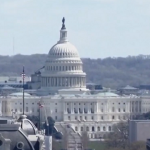The Prince of Wales has called on major cities around the world to set an example and join the “drive towards greater sustainability” as Athens has become the first city to adopt his Terra Carta (Earth Charter).
The city’s mayor along with chief executives from transport, energy and construction businesses have signed up to the set of principles, described as a roadmap to a green post-pandemic recovery, at the end of the Charles and Camilla’s two-day royal visit.
Speaking at an event to mark the signing, the prince said: “Cities, I think, have a really crucial role to play in accelerating the world’s progress towards a sustainable future.
“This of course is even more critical now as we look to recover from the devastating pandemic that’s affected every human and community on the planet.
“What we’ve learnt in the last year is that human health, economic health and planetary health are fundamentally interconnected.”
In January, Charles launched the ambitious charter calling on business and industry to act now and lead the fight against the climate crisis – or risk future generations looking back on “broken promises”.
The document has been described as the pinnacle of 50 years of environmental campaigning by the prince.
Drawing parallels with the Magna Carta, the touchstone for human rights and modern democracy, the set of guiding principles encourages big business, industry and the financial world to put “nature, people and planet at the heart of global value creation”.
During the event at Athens town hall, the prince was also awarded the Gold Medal of the Honour, the highest distinction in Athens. Remarking on his family ancestry and how “there is quite a bit of Greek blood that’s flowing around me,” he joked: “I seem to remember back in 1998, during another visit to Athens, I was given the Medal of the City, which as I said to you just now, I didn’t realise that people of my age might actually win a gold medal!”
Despite lockdown restrictions on travel abroad, the Prince of Wales and the Duchess of Cornwall had been asked by the UK government to travel to Greece, to join in the celebrations to mark 200 years of Greek independence.
Earlier in the day, Charles placed a wreath at the Tomb of the Unknown Warrior in Syntagma Square, where he was also joined by Camilla to watch the Independence Day military parade.
Usually thousands would gather on the streets to watch the event, but due to COVID restrictions only dignitaries from Greece were allowed, as well as representatives from the UK, Russia and France – all countries who helped in the fight for independence in 1821.
The visit felt like a classic example of what is expected of members of the royal family, and how they want to display their ongoing commitment to public service and duty.
It comes as there continues to be huge international interest around the internal family politics following Harry and Meghan’s interview with Oprah, and the palace has faced pressure to respond in more detail to the claims of racism.
The royal tour, with its formal ceremonial events and important diplomatic meetings with the president and the prime minister, certainly felt like a contrast to the new life the Sussexes are establishing.
This week it has been confirmed that Prince Harry is taking on two new working roles as chief impact officer for BetterUp, a mental health services business, and a role with the Aspen Institute to help “fight against misinformation” in the digital world.






















